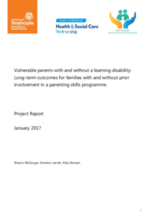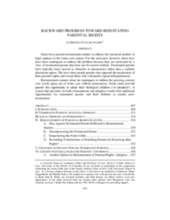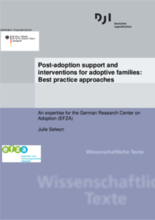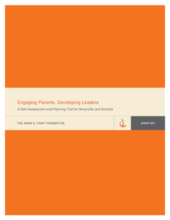Displaying 471 - 480 of 909
Families including a parent or parents with a learning disability can often have complex needs linked to issues such as poverty and mental health, and are known to be overrepresented in child care proceedings. Previous local project work with 12 families had demonstrated the potential of providing intensive support to parents with a learning disability, as well as others without a learning disability who were vulnerable for other reasons. A follow-up project 16 years later sought to re-engage with those families in order to explore their outcomes.
This brief summarises key findings of a qualitative study of the family strengthening approach of the Isibindi model.
This article examines the legal inadequacies of reinstatement statutes in the US which "often punish parents who opposed the termination of their parental rights and reward those who voluntarily signed relinquishments."
This rapid literature review was commissioned by the German Research Centre on Adoption (EFZA) located at the German Youth Institute in Munich (Germany). The overall aim of the review was to consider the support needs of domestic and intercountry adoptive families and the evidence for effective interventions. Step-parent, relative and domestic private adoptions were excluded.
A video from UAFA emphasizing the importance of early intervention.
This study tests an intervention to improve child welfare outcomes for substance abusing families, specifically the probability of families achieving a stable (at least 12 months) reunification.
In this video from United Aid for Azerbaijan, several experts and public officials discuss the importance of deinstitutionalization.
According to this study, mothers who abuse substances are more likely to have impaired parenting and lose custody of their young children.
This study examines the causal role that the source of income plays in reunification.
This self-assessment and planning tool is intended for nonprofits and schools working with families to provide services that more effectively reach and engage parents in fostering their children's development.




